- The Hook: Liberals urge action after Tories ignore order to produce census docs
- Canadian Federation for the Humanities and Social Sciences: Engendering Changes in Unpaid Work in Canada
- The Chronicle Herald: Premiers urge private-sector stimulus
- Leader Post: Homemaker’s fight falls flat with scrapped census
- Progressive Economics Forum: Taxpayers and the Census
- Leader Post: Census row: Tories have lost the plot
- The Vancouver Sun: Metro Vancouver’s housing committee pushing for long form Census
- The Vancouver Sun: Census fight kills woman’s fight to recognize unpaid housework
- Canada.com: Finding a new StatsCan boss could be tough, observers say
- Liberals: Liberals keep up pressure in census fight
- Ottawa Citizen: Tories go wacky with policies on census, prisons
- The Windsor Star: Vander Doelen: Census invades privacy (more from the dark side)
- Winnipeg Free Gaps on census, emissions: Lack of unity dooms mandatory form
- Ottawa Citizen: A fear of the census
- Canada.com: Long census clearly outmoded, not needed (oye veigh!)
- Star Phoenix: Is anyone really upset about the census? (what so many negatives!)
- The record: Metro politicians want long census form back
- National Post: Rex Murphy: The perils of question 32B
- Western Standard: Premiers reveal an ideological divide on the census
- BC Local News: Long-form census loss not life-or-death issue
- Burnaby News Leaders: Census flap raises local concerns
- Hill Times: An opposition worth its salt will make census restoration primary electoral pledge Harper’s census moves set the stage for a diminution in government’s ability to be involved in ordinary lives and limit the government’s capacity to make clear choices for the common good.
- Hill Times: Using charter to fight a voluntary long-form census absurd
Mounting a high profile fight and letting people believe that our country will collapse if Canadians are forced to fill out the long form for StatsCan is preposterous. - Reuters: Canadian government says no to census compromise
- The Toronto Star: Census change devalues women’s unpaid work
- Star Phoenix: Census change a step back: Lees Saskatoon woman pushed for inclusion of unpaid work in ’90s
- Toronto Sun: Former head of Stats Can gets new job
- Globe and Mail: Lauded economist slams census decision Accepting award for public policy leadership, Sylvia Ostry says long-form census change is ‘shocking’ and ‘ridiculous
- The Toronto Star: Siddiqui: Harper’s Ottawa becomes Republican la-la land
- The Western Standard: Lady Humphrey on the census reform
- The Winnipeg Sun: If in doubt, it’s sexist
- The Chronicle Herald: The Economy: Hear thyself
- The Financial Post: The new Prohibition
- Winnipeg Sun: Census a matter of choice
- The Globe and Mail: Premiers’ meeting to plot census strategy Census not on the agenda – but it will likely be on the table
- Dalhousie University News: Don’t mess with the census
- The Vancouver Sun: Global statistics industry leaders call for reinstatement of Canadian long-form census
You are currently browsing the archive for the federal government category.
Note: I am receiving material by email from folks and this was the motherload of images I found in my mailbox this week. I mean no copyright disrespect, and hope that the Artists, if they see their piece here, and see that I have not properly referenced them, will take pity, and just send me their references with a link to their other work. I think it is important to keep a public record of all this material as it looks like we are going to be needing it! There are more cartoons here, here and here.
- Ottawa Citizen: Stephen Harper’s magical departure from reality
- This Magazine: Margin of Error #5: Don’t just preserve the long-form census. Set its data free
- Cyberpresse: Harper ne veut pas d’élections à l’automne
- CBC news: PM touts economy as census furor ignored
- Radio Canada: Harper rebrassera les cartes
- Globe and Mail: NB Premier lashes out at Harper government over census comments
- The Toronto Star: Clement mocks critics of Tories’ census change
- Chronicle Herald: Long-form census on way out?
- Globe and Mail: Why Harper wasn’t asked about census
- Le Devoir: Retrait du formulaire long du recensement – Des solutions d’ailleurs déjà tentées ici Lettre à monsieur Ian McKinnon, président du Comité national de la statistique
- Cyberpresse: Hallucinations
- The Toronto Star: Goar: Separating fact from myth in the census saga
- The Toronto Star: Hébert: Harper burning his bridges
- The Globe and Mail: NB premier calls for more federal stimulus, questions census decision New Brunswick’s Shawn Graham says spending helped Canada weather recession, should be extended to avoid second dip
- Time Colonist: Stubborn stance on census foolish
- Ottawa Citizen: Stephen Harper’s magical departure from reality
- Globe and Mail: Parking woes top census fury, Jack Layton says
- The Province: Port Coquitlam woman’s fight to recognize unpaid housework lost in census changes
- Toronto Star: Premiers set nation’s agenda
- CTV: Premiers discussing thorny census issue: Selinger
- Toronto Star: Hébert: Harper burning his bridges
What do I say? Imaginary numbers, the “alarming rate of unreported crimes” to justify building prisons. I must revert to The Wire for wisdom. BEWARE the video clips below are loaded with swear words. (not the Canadian video of course – it’s just blasphemous!.
NOTE: StatCan does not juke stats, but the current government sure loves juking. So they are juking the stats to kill the real stats. Please lets not become like the US!
Juke, Juked, Juking
realm: American street slang
To intentionally confuse, distort, outmaneuver or misdirect attention away from what is real to favor what is illusory, imagined, or a more desirable outcome. (Newsroom Magazine).
The definition above accompanies a great interview with David Simon the creator of the Wire: Gaming The System, Juking The Stats. Do watch this great interview series on PBS with Bill Moyers.
The Wire on Juking the Stats:
Juking Stats for curriculum alignment. Remember this is hard core TV social discourse on power that would make Foucault proud. This is also drug ridden, underfunded, cops loosing jobs, no child left behind urban Baltimore under Bush. In Canada violent crimes are going down, violent crimes are reported while spousal abuse reporting is always problematically un-dereported while petty theft (like your bike got stolen) are under reported. Bike theft and prison construction however, do not co-relate!
Such poignant commentary:
They Manufactured an issue to get paid and we manufactured and issue to get you elected Govenor. Everybody is getting what they need behind some make believe.
Marilyn Waring contributed to the inspiration for the questions on Unpaid Work that were part of the Long Form Census (1996, 2001 and 2006). The National Film Board of Canada (NFB) has a copy of the film for free viewing: Who’s Counting: Marilyn Waring on Sex, Lies and Global Economics. It is well worth the time to watch and learn about how those questions came about and why they are so important. I saw the film at the Main Public Library a couple of times, usually shown just before Census Day.
I guess women will just have to invent new professions again: educator, household engineer, recreation manager, child coordinator, plant supervisor, home health care provider and so on! Watch the film for ideas.
These questions were scrapped by the “New” Government and for some odd reason, the National Statistics Council recommended that these questions be removed as part of their compromise offer to the Conservative Government. It is claimed that this was the series of questions that generated the most inquiries. Hmm! What was the nature of the complaints and who made them? I wonder if the anti childcare, stay at home & back to the kitchen, Tory lovin’ lobby called REAL Women had a posse working the phones! ( I will inquire!)
As Stockwell Day indicated today (ahum) on the topic of ah, crimes stats, how can we know if things are not counted, but that does not mean we do not build an entire infrastructure of prison, just because we don’t know (ahum ahum). Hey does that mean we get daycare? Social Housing? Income supports and removal of claw backs for sole support parents? etc. The argument used to be, show us the numbers. The real numbers are gone, so we just have to communicate with our imaginary friends and make stuff up – alarming rate of un-reported crime – go figure ay. Well, it seems that with this government, the numbers just don’t matter. Oye veigh!
Marilyn’s Book Counting for nothing: what men value and what women are worth was my first encounter with critical thinking and data. I was in New Zealand and the friends I was staying with gave me the book as a souvenir! It might be time to read it again!
The questions on unpaid work first appeared in the 1996 Long Form Census (see Q. 30 on 1996 Long Form Census and Q. 33 on 2001 Long Form Census). We have 15 years of data and these are R.I.P.’d for 2011. I guess unpaid work will cease to happen after that!
2006 Census Questions on Unpaid Work:
33. Last week, how many hours did this person spend doing the following activities:
(a) doing unpaid housework, yard work or home maintenance for members of this household, or others? Some examples include: preparing meals, washing the car, doing laundry, cutting the grass, shopping, household planning, etc.
- None
- Less than 5 hours
- 5 to 14 hours
- 15 to 29 hours
- 30 to 59 hours
- 60 hours or more
(b) looking after one or more of this person’s own children, or the children of others, without pay? Some examples include: bathing or playing with young children, driving children to sports activities or helping them with homework, talking with teens about their problems, etc.
- None
- Less than 5 hours
- 5 to 14 hours
- 15 to 29 hours
- 30 to 59 hours
- 60 hours or more
(c) providing unpaid care or assistance to one or more seniors? Some examples include: providing personal care to a senior family member, visiting seniors, talking with them on the telephone, helping them with shopping, banking or with taking medication, etc.
- None
- Less than 5 hours
- 5 to 9 hours
- 10 to 19 hours
- 20 hours or more
These were just after education and just before paid work. There is no long form Census for 2011 (so far anyway), there is this thing called a voluntary survey, and it does not include the questions on unpaid work.
- Toronto Sun: Census plan continues to dog Harper
- David Akin On the Hill: MPs get letters: Conservative supporter ready to quit over census decision
- Globe and Mail: Canada’s stat crunchers join census fight ‘The world, in fact, has spoken on this issue,’ says Statistical Society of Canada
- Winnipeg Free Press: How Harper cut the census strings, then got tangled in them
- The Hill Times: Census controversy affecting StatsCan morale in ‘major way’ Ivan Fellegi says the federal agency is in crisis.
- The Hill Times: Feds to spend $25-million to protect integrity of short census, to clear confusion Some $25-million of $30-million on advertising to be spent on short census follow-up.
- Winnipeg Free Press: Premiers meet to discuss recovering economy, water protection and census
- The Vanity Press: Don’t Wanna Be a Canadian Idiot
- Nova News Now – The Register – AGAR ADAMSON: Taking the long road
- The Mark: The Harper government has found a way to revise the census and remake Canada’s public service at the same time.
- Rabble.ca: Protecting our civil liberties (or securing us within the privacy of our home)
- The Hill Times: Can the provinces fix the census fiasco?
Once again, Stephen Harper has charted a course for the nation that drops the ball in the provinces’ and territories’ lap. - Edmonton Sun: Stelmach says surveys are valuable
- Troy Media Corporation: Personal privacy issue triggers Census uproar
- CBC news: Census move hurts Toronto planning: official’We’re operating in an entire fog here’
- Winnipeg Free Press: Alberta cities say census change doesn’t add up
- Axcess News: Statistics Canada brews political fight over census
- Planetizen: Canadian Urbanists weigh in on Census Controversy
- CBC news: Ottawa councillors denounce census change
- National Post: George Jonas: Drop the census charade
- Leader Post: Canada’s big crisis: filling out forms
- Toronto Star: Voluntary census ‘intrinsically biased’
- The Montreal Gazette: A failure to communicate Communications is not rocket science, but the Harper government just doesn’t seem to get it
- Le droit: Recensement: le temps presse pour les détracteurs du questionnaire volontaire
- Telegraph Journal: Why the census matters
- Cyberpress: Recensement: le nouveau questionnaire évacue le travail non rémunéré
- Cyberpresse: Ah!, les statistiques!
- Cyberpresse: Trou de mémoire inacceptable
 Via: BI Professional
Via: BI Professional
An introduction for my many international followers:
King: Canadian Prime Minister Stephen Harper
Page: Canadian Industry Minister Tony Clement
Statistician: Recently resigned head of Statistics Canada, Munir SheikhSpecial thanks to data quality expert Jim Harris whose Dr. Seuss-style data quality limmericks and songs served as a partial inspiration to this piece. His blog can be found on my Blogroll (Obsessive Compulsive Data Quality).
Enjoy!
Good King Censusless looked out
On the cottage season.
With the sunshine round about
Warm and crisp and even.
Everyone was drinking beer
Feeling great elation.
How could he disrupt the cheer
breaking cross the nation?“Mr Clement, come by strife,
If you know so, say it.
How can I make foul the life
Of the summer respite?”
“Sire, a man I once knew long
Loathed the census taking
If you could remove this wrong
You’d be nation-making.”“Make it so”, he said at once
With no consultation,
“Though I may be thought a dunce
Causing consternation.”
Statistician would not toast
His part in this madness.
He would rather quit his post
Causing him much sadness.Harper bellowed “What a fool!
Get that man to focus!
He should know that math’s not cool,
Stats are hocus pocus.”
Statistician stood his ground
In the public’s favour.
He said he was honour-bound;
People saw him braver.“Bring me hatchets, bring me fire,
We shall burn his cabin!
He’s earned my unholy ire!
He won’t know what happened!”
Page and Monarch, off they trode,
Off they trode together
Feeling stormy, yet instead
Of the sunny weather.Statistician’s cabin burned
To the ground next morning.
Page and Monarch never learned,
Though this be a warning:
Cabin dwellers all be sure
Be you all accounted,
Those who cannot count the poor
Can’t themselves be counted.
I received tips about other canceled or cuts to government surveys. I am checking to see what else might be missing in this list. Looks like there are MORE serious cut-backs to knowledge in Canada. Also READ the comments to this post, they are loaded with great information. Armine Yalnizyan adds the following:
” “cut” can mean different things, from discontinued, to throttled in terms of sample size, to lost questions (census/NHS), to just delaying it indefinitely.” (email communication)
NEW INFO IN this Datalibre post (05/08/2010)
The Digital Journal article Cancellation of Youth In Transition Survey Shortsighted includes the following:
- Youth In Transition Survey (YITS)
- National Longitudinal Survey on Children and Youth (NLSCY)
- National Apprenticeship Survey (NAS)
- Program for International Student Assessment (PISA)
These were carried out jointly between Human Resources and Skills Development Canada and Statistics Canada.
According to The Tyee and a few others, this one has been cancelled. However, other information says “CP story about Public Service Employee Survey wrong: Treasury Board. Survey still a go; a proposed annual survey spiked.” (need to verify!):
5. Public Sector Employment Survey (PSES)
While the Globe and Mail; Social Policy in Ontario, NJN Networks and the Council of Canadians with Disabilities report that the following was scrapped by HRSDC.
6. Participation and Activity Limitation Survey (PALS)
Armine Yalnizyan, in her open letter to Tony Clement published in the Progressive Economics Forum includes references to the following survey cuts and cancellations. I also received some email communication about these:
7. Workplace and Employee Survey (WES)
“WES was discontinued in 2009. It told us about benefits related to working, I think the only annual source of info on healthcare and pension benefits, but could be wrong”. (I will verify this later)
8.Survey of Household Spending
“was designed to inform us of spending patterns of Canadian households. It is about to change its methodology to save costs. Because of these changes we will no longer know what is happening to the savings rates and debt levels of rich, poor and middle class families”. email communication: “SHS is undergoing a methodological change that will see it provide less detailed (i.e. distributional) info. Aggregate info (average, mean) will still be just as robust but we will know less about how different are rich and poor households’ patterns of saving, dis-saving (going through savings and borrowing) and spending on things like housing, healthcare, energy, education as a % of their incomes.”
9. Survey of Financial Security
“tracks the distribution of assets and debts across income groups, age groups, family types, and regions in Canada, something virtually all advanced industrialized nations do on a regular basis. It was last undertaken by Statistics Canada in 2005. There are no plans to run it again. It has been deemed an unnecessary survey.” email communication “last run in 2005, assesses net worth (assets minus debt) and what contributes to it, like value of house, value of RRSP,RPP student debt, mortgage debt, etc. It is an occasional survey but clearly something of interest these days. Last time it was run was because HRSDC financed it because of tight budgets at StatCAn (no $ for occasionals). The sample size was 9,000 instead of the 23,000 the previous time (1999), and while results were robust enough to be published at the national level by decile, it was no longer possible to order data to assess changes for young versus older families with children or immigrant families. “
It seems like the Survey of Financial Security,according to StatCan is”
is budget or sponsor dependent, the status is occasional and not cancelled.”
A colleague who works with municipal scale data sent the following:
10. Longitudinal Survey of Immigrants to Canada (LSIC).
This may have been a planned conclusion to this survey. But, then, that’s one thing that is so vexing about this situation: The absence of any transparent attempt at “planning” for changes to our survey instruments and methodologies.
One other thing to note about the list of canceled surveys: None of these is relevant to organizations seeking to measure trends or conditions at the scale of either municipalities or neighbourhoods. The closest would be the SHS, which captured some trends for “selected CMAs”. We need MORE information about municipalities and their neighbourhoods, not less!!! (Email communication)
I need to check on this new information which was posted in the Comments of Armine’s open letter:
?Transportation data? “transportation in Canada, many data series have been discontinued over the last couple of decades -these are data on the “supply side” of transportation, which is a sink for quite large infrastructure expenditures which need to be “got right” a priori”
The following need to be validated. Has anyone heard of these or any others that have been canceled?
?Survey of Financial Security?
?Workplace and Employee Survey (WES)?
?Survey of Household Spending?
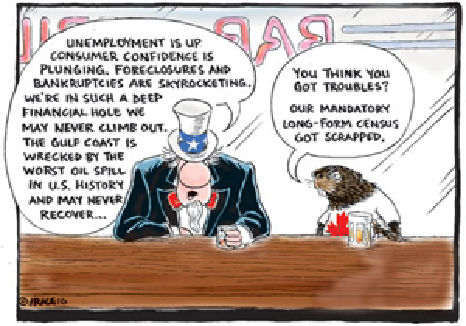
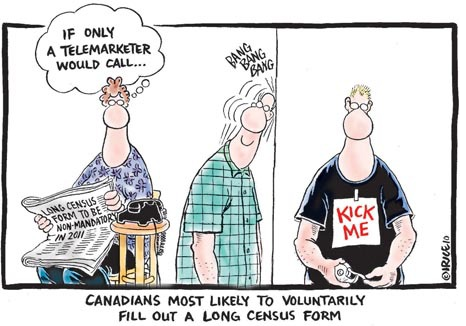
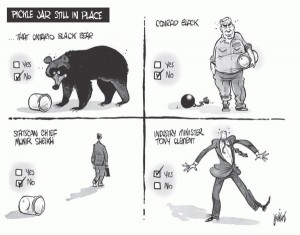

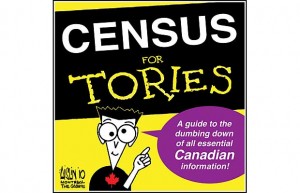
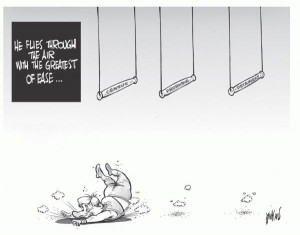
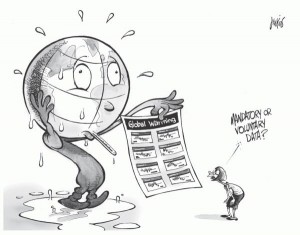
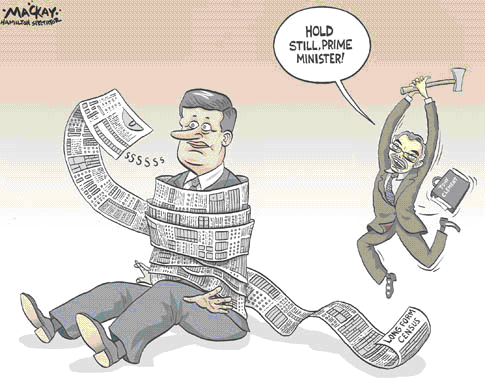

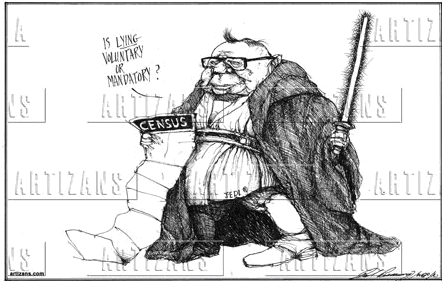
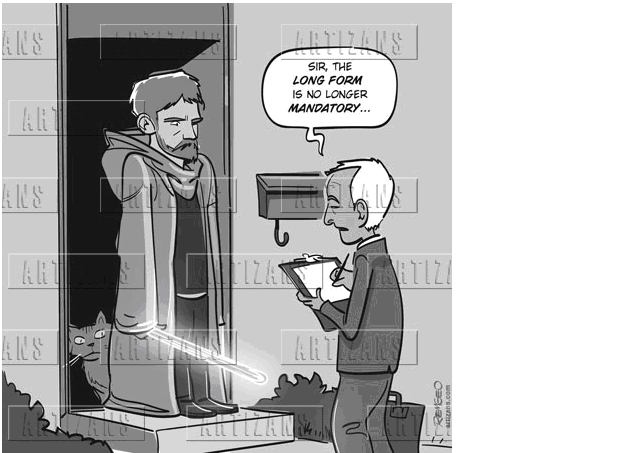

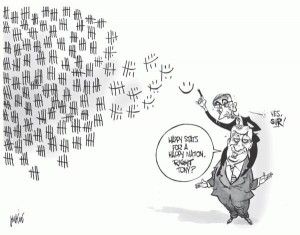



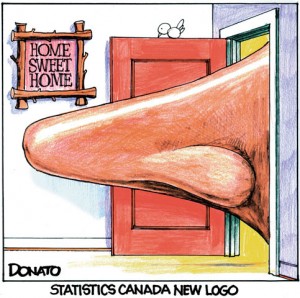
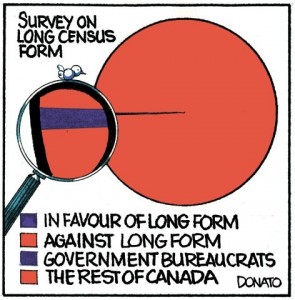
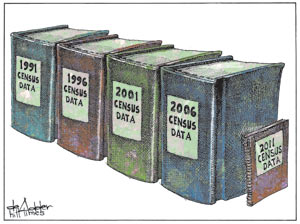
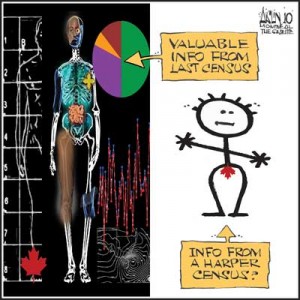
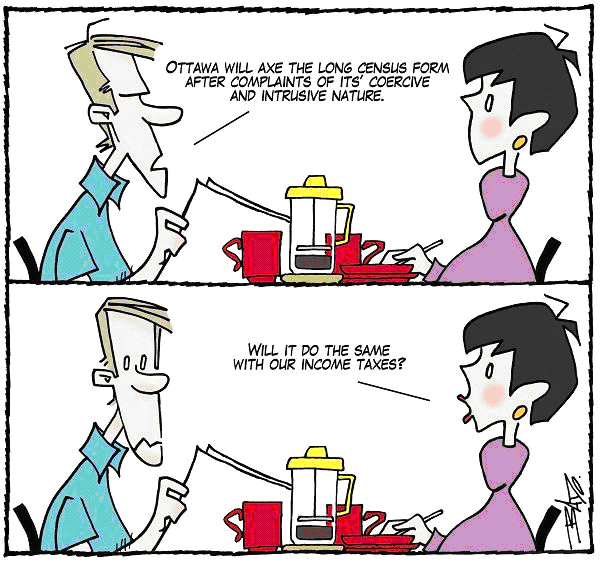

![CountingForNothing What Men Value and What Women are Worth [Paperback]](https://www.datalibre.ca/wp-content/uploads/2010/08/CountingForNothing.jpg)

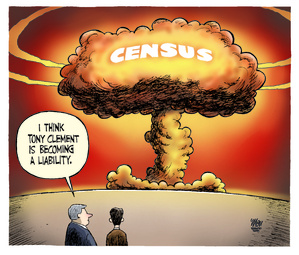
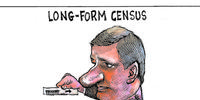
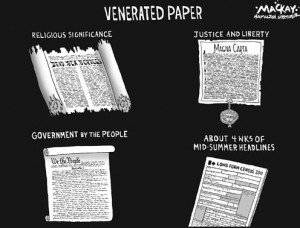

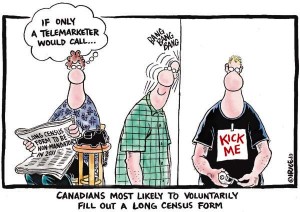
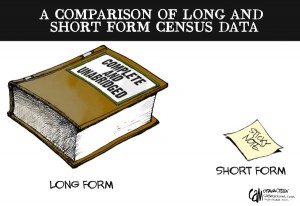
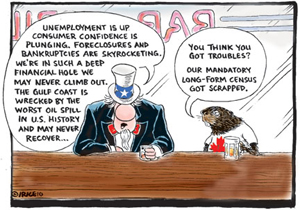
Comments on Posts